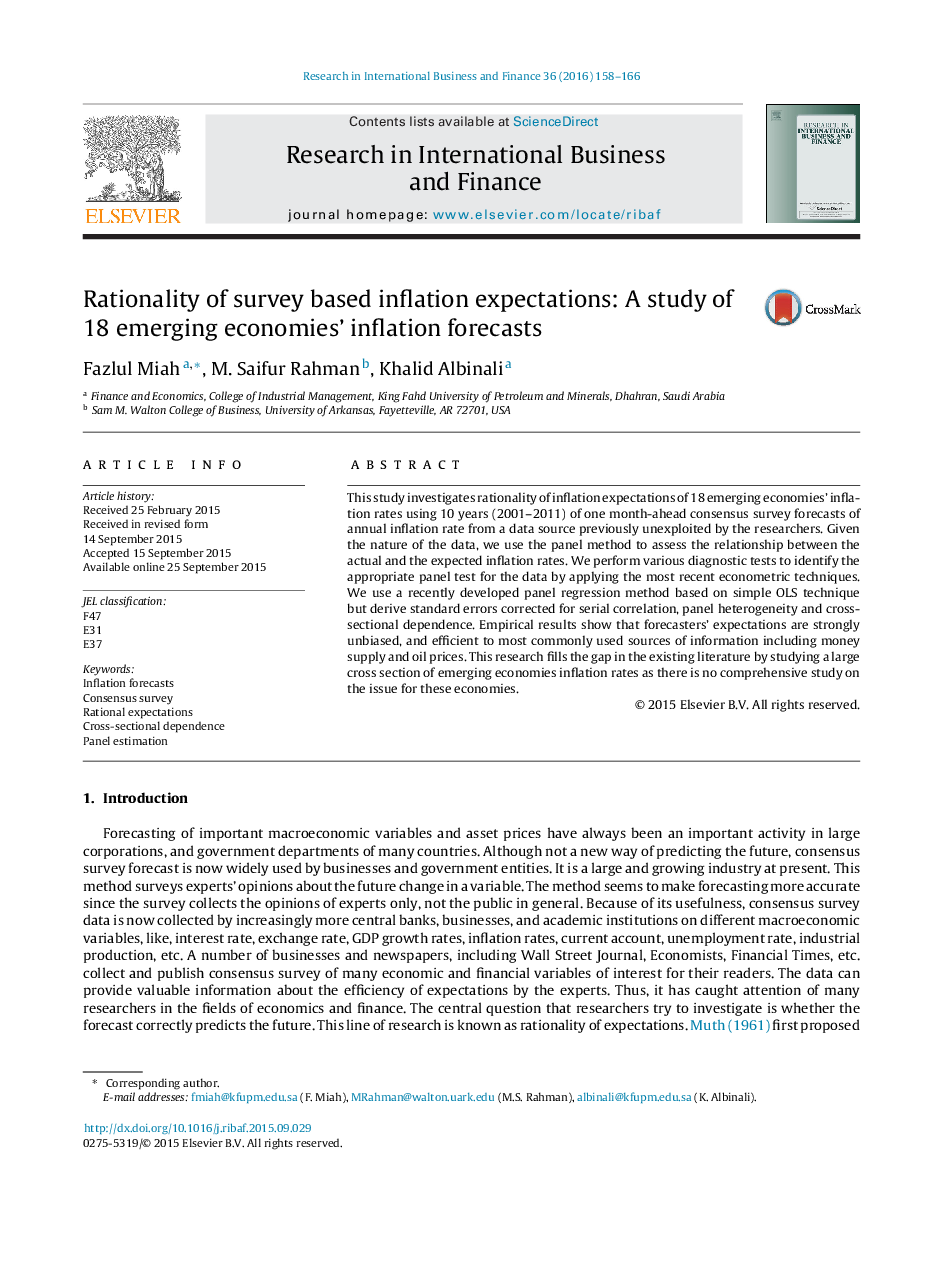| Article ID | Journal | Published Year | Pages | File Type |
|---|---|---|---|---|
| 1003506 | Research in International Business and Finance | 2016 | 9 Pages |
•The study performs both unbiasedness and efficiency tests.•The study conducts various diagnostic tests to identify the appropriate panel tests.•The results of the panel-based unbiasedness tests show a strong acceptance of the null hypotheses of unbiasedness.•The results of the orthogonality tests show that forecasts are efficient.•The results have implications for the financial market participants and policy makers.
This study investigates rationality of inflation expectations of 18 emerging economies’ inflation rates using 10 years (2001–2011) of one month-ahead consensus survey forecasts of annual inflation rate from a data source previously unexploited by the researchers. Given the nature of the data, we use the panel method to assess the relationship between the actual and the expected inflation rates. We perform various diagnostic tests to identify the appropriate panel test for the data by applying the most recent econometric techniques. We use a recently developed panel regression method based on simple OLS technique but derive standard errors corrected for serial correlation, panel heterogeneity and cross-sectional dependence. Empirical results show that forecasters’ expectations are strongly unbiased, and efficient to most commonly used sources of information including money supply and oil prices. This research fills the gap in the existing literature by studying a large cross section of emerging economies inflation rates as there is no comprehensive study on the issue for these economies.
Graphical abstractFigure optionsDownload full-size imageDownload as PowerPoint slide
